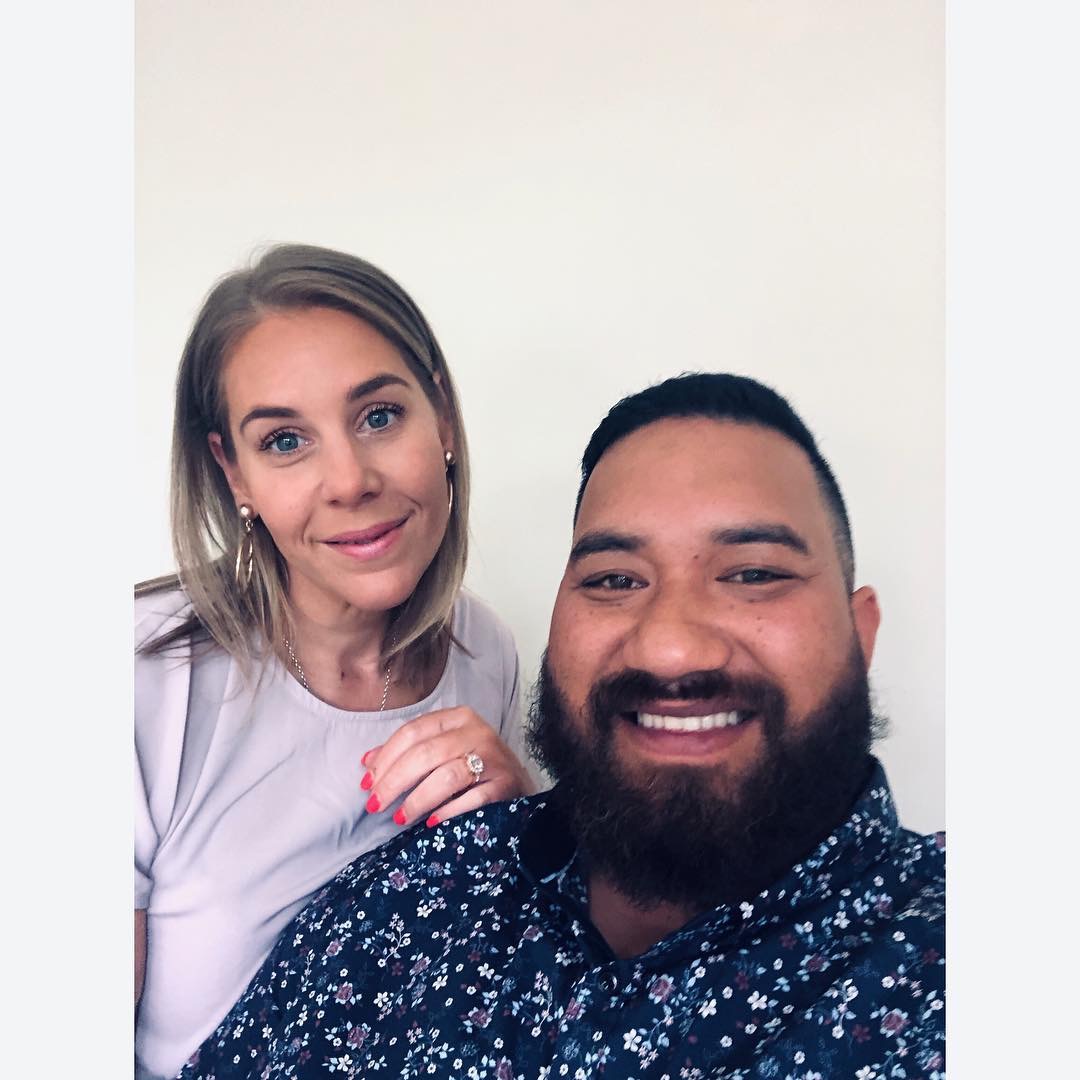Inside ANZ
Mind over matter
“Having that conversation with my manager at that time made me feel like it was ok to not be strong and superhuman all the time.” – Libby Timoteo

“Wear your smile today because you don’t know who’s going to need it,” Uele Timoteo says to his wife Libby every morning before they leave each other’s company to go about their respective days.

'Libby' Illustration by: Melissa Currie
Libby Timoteo is a loving wife of 11 years, a mother to three boys, Luca (14), Lenix (10) and Layton (9), and an inspirational people leader at ANZ.
Growing up together
“I was 18 when I had Luca,” remembers Libby.
“To have a kid so young, you almost have to work just that little bit harder,” she reflects. “You go straight from being in high school to looking after someone. You never get that chance to think ‘What do I want to do? Who do I want to be? How do I go through life and learn?’ You don’t want to fail because you’ve got someone else depending on you.”
From the land of the white cloud to the land down under
In 2014, Libby, Uele and their young family made the move from the only home they had ever known, in Wellington, New Zealand to Melbourne, Australia.
“I’d never left New Zealand before. I’d never even been overseas before,” says Libby.
She wondered what else the world had to offer in terms of her career. It was timely that an opportunity to work at ANZ in Melbourne presented itself.
Episodes of anxiety
A few years down the track Libby had settled herself and her family into life in Melbourne and had started in a role which she loved but was completely new and unfamiliar to her.
“I wasn’t feeling comfortable in myself. I didn’t really know what was next for me,” she says. “I was feeling a little bit lost and overwhelmed and I went through quite a bit of anxiety.”
According to Beyond Blue, anxiety is the most common mental health condition in Australia. On average, one in four people – one in three women and one in five men – will experience anxiety at some stage in their life.
In a 12 month period, more than two million Australians experience anxiety. It is common but the evidence strongly suggests the sooner people with anxiety get support; the more likely they are to recover.
Workplace support
The first step in being able to move forward for Libby was an initial conversation with her line manager. She recalls many irrational thoughts running through her mind at the time.
“The first thoughts that popped into my head were things like ‘It’s going to be portrayed as a weakness’ or ‘It will be flagged on my record so the next person who hires me will think I’m someone who struggles with anxiety’,“she says.
In reality, her manager was extremely supportive, saying thing like ‘It’s ok, I know who you are’, ‘This is not something that’s going to be held against you’, ‘Do what you need to do to be your best at work and your best at home’.
“Having that conversation with my manager at that time made me feel like it was ok to not be strong and superhuman all the time,” says Libby.
An objective perspective
“I talked to my husband but I also engaged ANZ’s EAP (Employee Assistance Program) at the time as well, just from a support point of view,” says Libby. “[It was helpful to speak to] someone who didn’t have a vested interest in me because I feel like if you speak to someone who knows you really well they tend to say things like ‘don’t be silly you’re not like that’ or ‘don’t think that, it’s not like that at all’.”
Libby eventually sought out medical advice from her doctor.
“He offered me medication but I knew I wasn’t ok with taking medication. I knew what I needed was just time and a moment to talk about it,” she says.
She recalls him advising her “I’m not a counsellor but I strongly suggest taking a week off even without the kids. A week that’s just for you. Take a journal and just start writing things down”.
Returning home
Libby went back to her manager to let her know she needed to take a week of annual leave. She remembers her manager saying “It’s actually sick leave because of what you’re going through. The doctor told you to do this – don’t take it out of your annual leave”.
So Libby went home.
“Whenever I go back home to New Zealand, there’s something about the place that I feel spiritually connected to. Going back to the land of where you’re from – it’s just so invigorating,” she says.
“One of the first things I always do when I go back home is to take my shoes off and put my feet on the grass or the sand to reconnect and reroute to where I come from.
“It’s a thing in our culture – you come from the land and you give everything back to the land.”
Libby’s brother picked her up from the airport and her first request was for them to go straight to the beach.
“I hadn’t told him anything of what I was going through,” she remembers. “And he just sat there beside me. He didn’t ask me anything. We both took our shoes off and sat on the sand with the water going over our feet.
“I was thinking ‘You’ve got this. It’s all good.’ It was one of the most healing moments.”
Journaling
“Journaling did help,” replies Libby when asked about the other piece of doctor’s advice.
“I have a tendency to numb quite a lot. I’ll just go on technology or watch TV so I don’t really have to connect with what’s really happening. At first I was just writing anything down – you know all the superficial stuff about what I did on that particular day,” she says.
“And then I started listening to my thoughts and whatever was running through my head. Sometimes they were ridiculous things I knew weren’t true like ‘You’re not worthy’. It made me think, ‘I’ve just spent 20 minutes and I’ve got all these [negative] thoughts on paper. I must go eight hours a day not listening to what those thoughts are telling me and they’re turning into self-beliefs.
“Getting them out allowed me to say to myself ‘No. I actually don’t believe that’s true’”.
Flipping the script
Being conscious of these thoughts – thoughts such as “I’m not good enough. I’m the biggest person in the room. I’m not the smartest person in the room. I’m the only woman in the room. I don’t want to say anything stupid because I’m the only woman in the room.” – helped Libby to reframe them into something more useful.
“I wasn’t ok with believing that it mattered I was the only woman in the room. So it allowed me to flip that thought into ‘Wow, how awesome. I’m the only woman in the room!’” she says.
Related stories
Inside ANZ
Single, working parents: I salute you!
Inside ANZ



